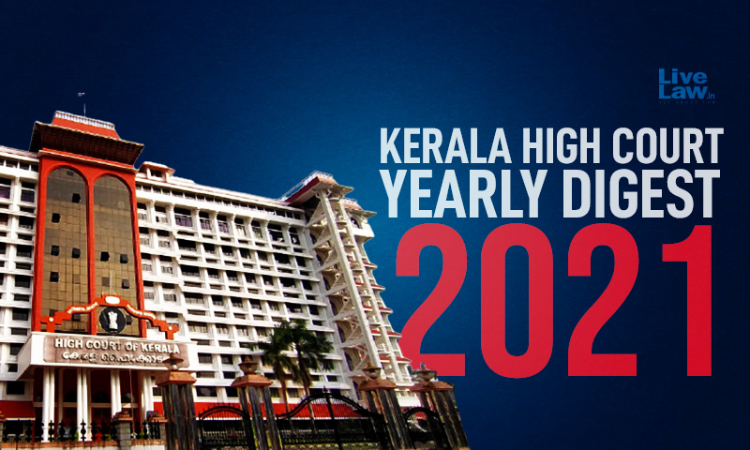- Home
- /
- Top Stories
- /
- Kerala High Court: Yearly Digest...
Kerala High Court: Yearly Digest 2021
Hannah M Varghese
1 Jan 2022 12:55 PM IST
With 2021 coming to a close, LiveLaw brings to you an annual Round-up of significant updates of the Kerala High Court. Criminal Matters:International Arrest Warrant By Itself Not Sufficient To Extradite A Person To UAE Unless There Is A Written Request[Rakhul Krishnan v. Union of India]Justice N. Nagaresh held that International Arrest Warrant issued by itself will not suffice to arrest...
Next Story



